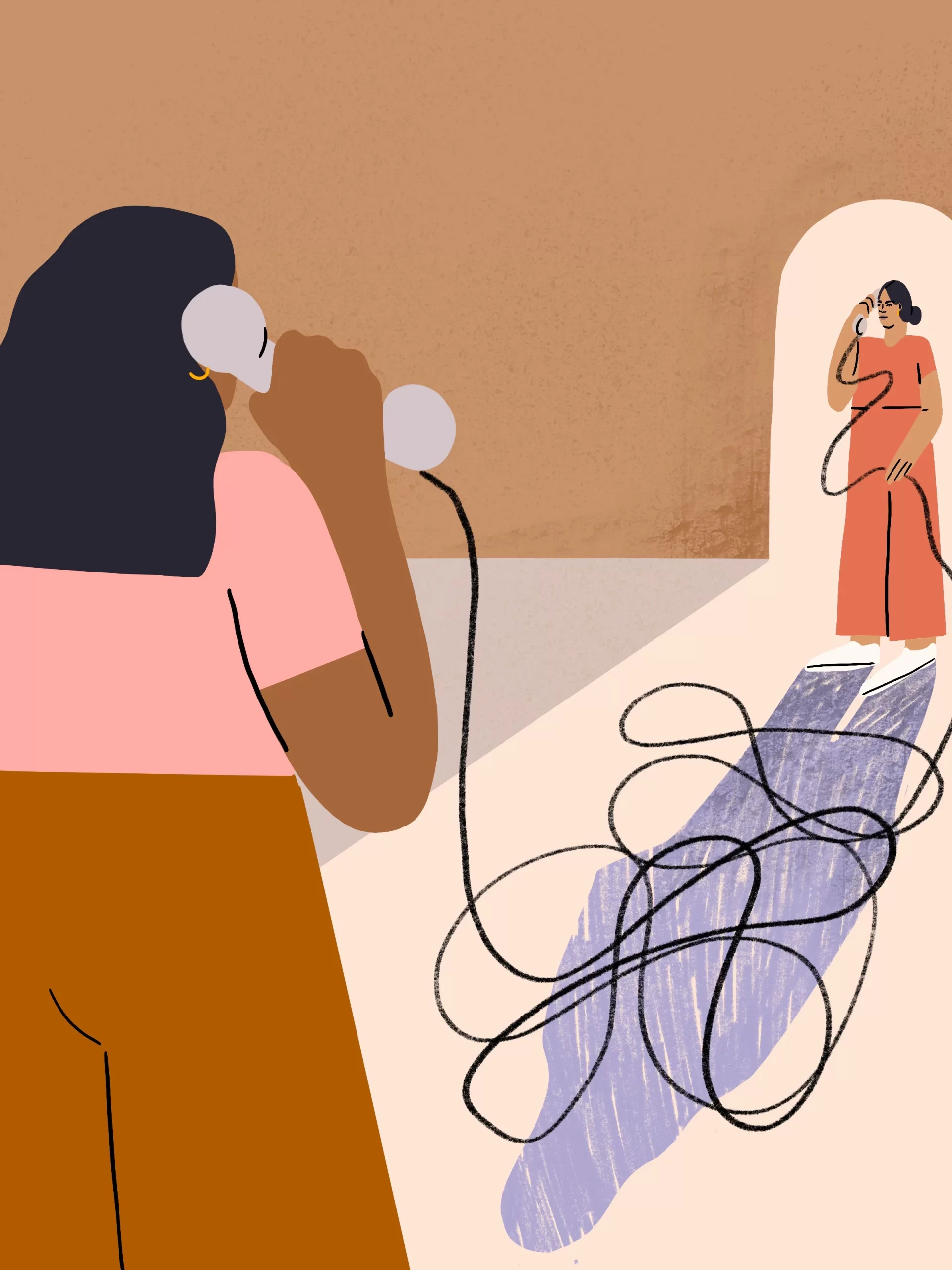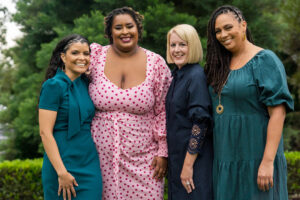
“Your no makes the way for your yes. Boundaries create the container within which your yes is authentic. Being able to say no makes yes a choice.” adrienne maree brown
Do you ever not pick up your phone because there’s a high likelihood that the person calling is going to ask you for something, and you don’t want to say no, so it’s easier to just not pick up? Whether out of obligation, fear, or uncertainty there is always some difficulty in saying no to certain family, friends, colleagues, and sometimes even strangers. Even so, no is a necessary word to say for our well-being and important to understand so that we can offer it from a place of honesty and welcome the possibility of more authentic relationships on the other side.
Take a moment to think about the following questions:
- How do you feel when people say no to you?
- How does it feel for you to say no to others?
- How do you know when to say no? Where do you feel it?
- Who’s someone you deeply care about and can say no to with ease and still have a close loving relationship?
- What does it feel like when your no is honored and when it’s dismissed and unheard?
Discernment in when we offer a loving no is something we intentionally wrestle with at Threshold Philanthropy as we grow and continue to receive requests for our presence and energy. The invitations and asks come for many reasons, established relationships, favors, you’re a good fit cold call, and being Black and Native in philanthropy. There are not many of us in this sector, and even fewer are philanthropies led by our communities.
At Threshold Philanthropy we want our no to feel like trust and transparency. Releasing our conditioned understanding and overcoming shame, that if we set a boundary people might think that we are untrustworthy, we don’t know what we are doing, or we are perpetuating harm. The truth is some people will think these things anyway. As Black, Indigenous, queer and women identifying squad, we are familiar with those narratives. Each of us have very different lived experiences and our relationship with no is similar. Members of our team were not taught how to say no, it was expressed that saying no was mean and a bad word. Saying no equaled not being helpful, and that meant that you could be labeled a bad person. Our measure of worth as double x chromosome folks was in our ability to be open for anything that was asked or forced on us. 
Some of you who have started your own businesses and entities, know that making decisions becomes your full-time job right out the gate. We got to practice our noes real fast! We offered loving noes to people offering us office space: vendors, consultants, accountants, financial firms, attorneys, and more. We were intentional about who we interviewed and when they asked for feedback we offered it with love and transparency. As people who are the recipients of unsolicited feedback, we were aware not to overload people with feedback they did not ask for. Some asked if we did not choose them, to let them know who we did go with. Loving noes were easier when we could see that our philosophy, priorities, and values differed from the companies and individuals we were in conversation with.
Our early noes gave us the opportunity to reflect on what partnerships and approaches were aligned with our values and vision. We engaged in deep conversation and asked hard questions.
Will this be funded without us? Is this business also building generational wealth?
We were clear about our approach and commitment to community care. We named the harm caused by specific institutions, programs, and approaches.
This organization is not accountable to community. Will this be transactional, a one off, or is this going to deepen our relationship with community?
We invited our peers into deeper conversation about how they are addressing harm caused by their institutions. From these experiences we realized that it would be helpful to have these commitments and approaches down on paper. We have since started developing what we’re calling philosophies – living documents that shape our work internally and provide clarity for our partners and communities on why and when we say yes and offer our loving no.
Sometimes our no is love and protection for our bunch of wallflowers. When we listen to our team and learn where their growth edges are, it is love that invites us to support them in stating their needs for boundaries and holding them accountable to stick to them. Whether it is boards that we should join or leave, who we work with and speak on panels for.
Is this the best use of my time? Am I learning or teaching in this environment?
Continuing to check in and encouraging each other to name our needs, desires, and paths forward, and celebrate each other. 
Threshold Philanthropy is about stewarding and returning resources rooted in love. We’re about strategizing the creative healing, investment, and power-building work that is most aligned with our values and superpowers. Offering our loving no is never about lack of resources. For example, while looking for website firms, every firm we asked a proposal from, we paid for that proposal. We do not ask people to work for us for free. Period. We consider anything that takes people away from their lives to support our team and partners to be work and feel a responsibility to honor people, including financially.
Our loving no to community is about relationship and restoration. We are committed to learning what our needs are, how to communicate them, and respectfully asking for your needs. From there, we can come to an agreement that is centering each other’s dignity and responsibility. Negotiating boundaries will not always feel good and doesn’t always mean that either party will love the outcome. It does always mean though that we are honoring ourselves and the people involved. Making sure that we do our best to cause the least amount of harm possible, knowing that hurt and mistakes are to be expected.
Remember that no has options, you can mean no in one moment and after learning more information, change your mind and say yes. Let your imagination run wild with scenarios where your no cultivates loving and equitable relationships. Here are some elements that support a loving no: empathy, compassion, integrity, trust, curiosity, and being aware of your emotional landscape. Choosing to develop and lean into the characteristics above makes it more possible for our culture to receive requests and noes as good information and a gift. Go in with some humility and grace, expect to make mistakes, knowing that the sting of being wrong or stumbling and trying again will feel less painful and jarring each time we practice. our muscles will grow and it will be easier for us to make requests and say no so that we can live in more joy and alignment with ourselves, those we love, and our environment. Let’s get practicing!*
“Boundaries are the distance at which I can love you and me simultaneously.” Prentis Hemphill
*Threshold Philanthropy Loving No Playlist
Illustrations by Stephanie DeAngelis
illustrations by Nicole Medina



Leave a Reply